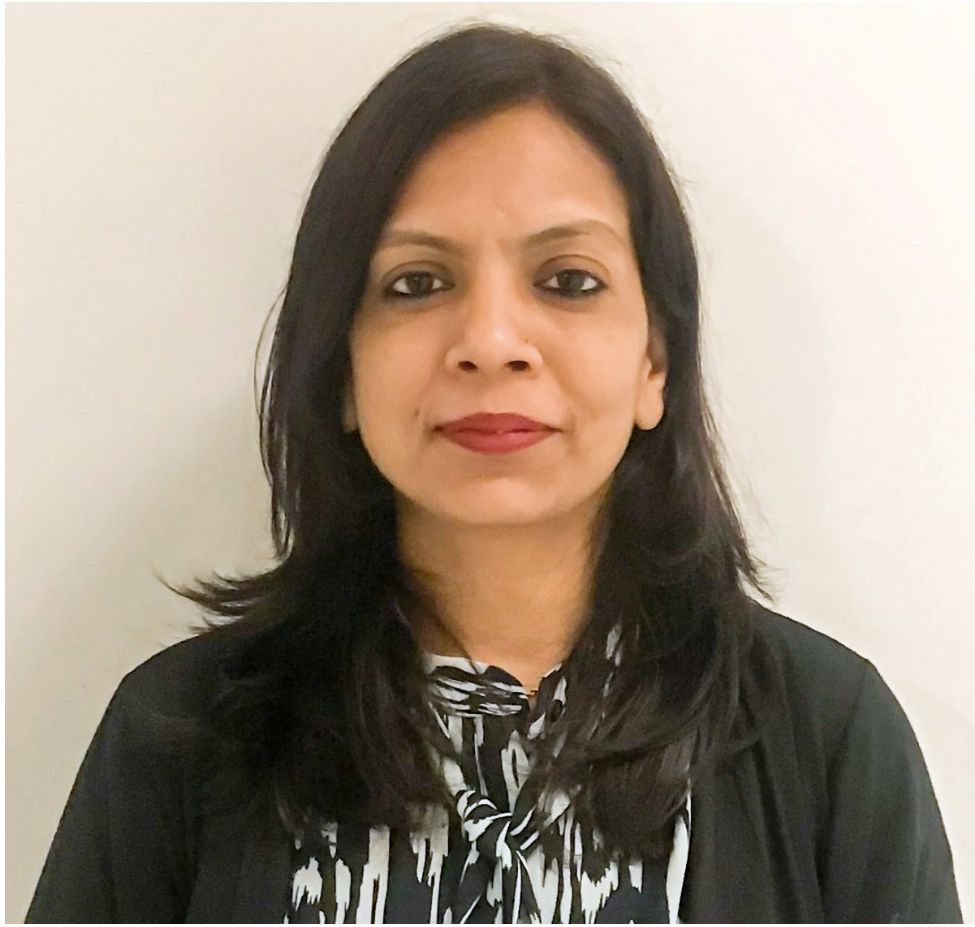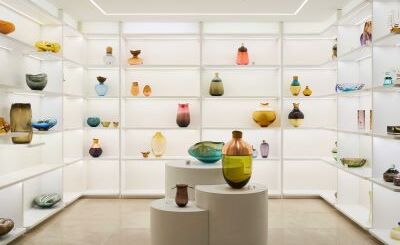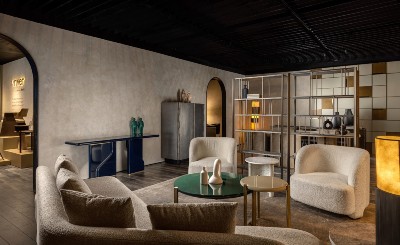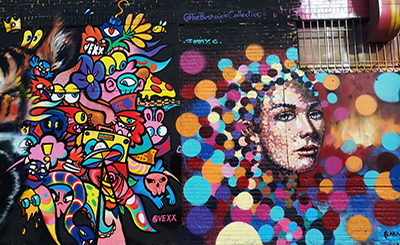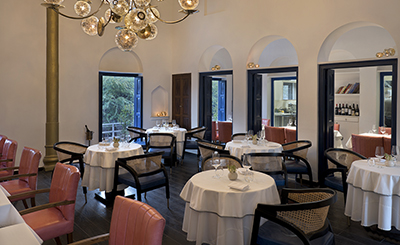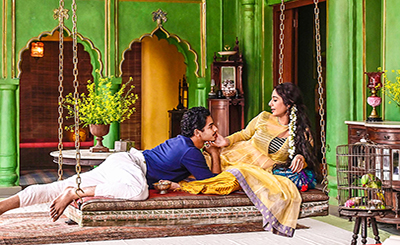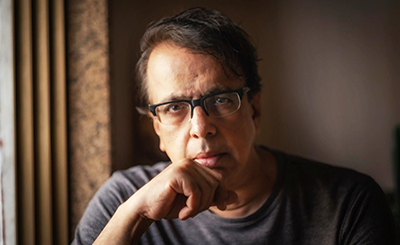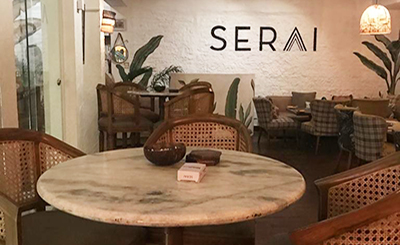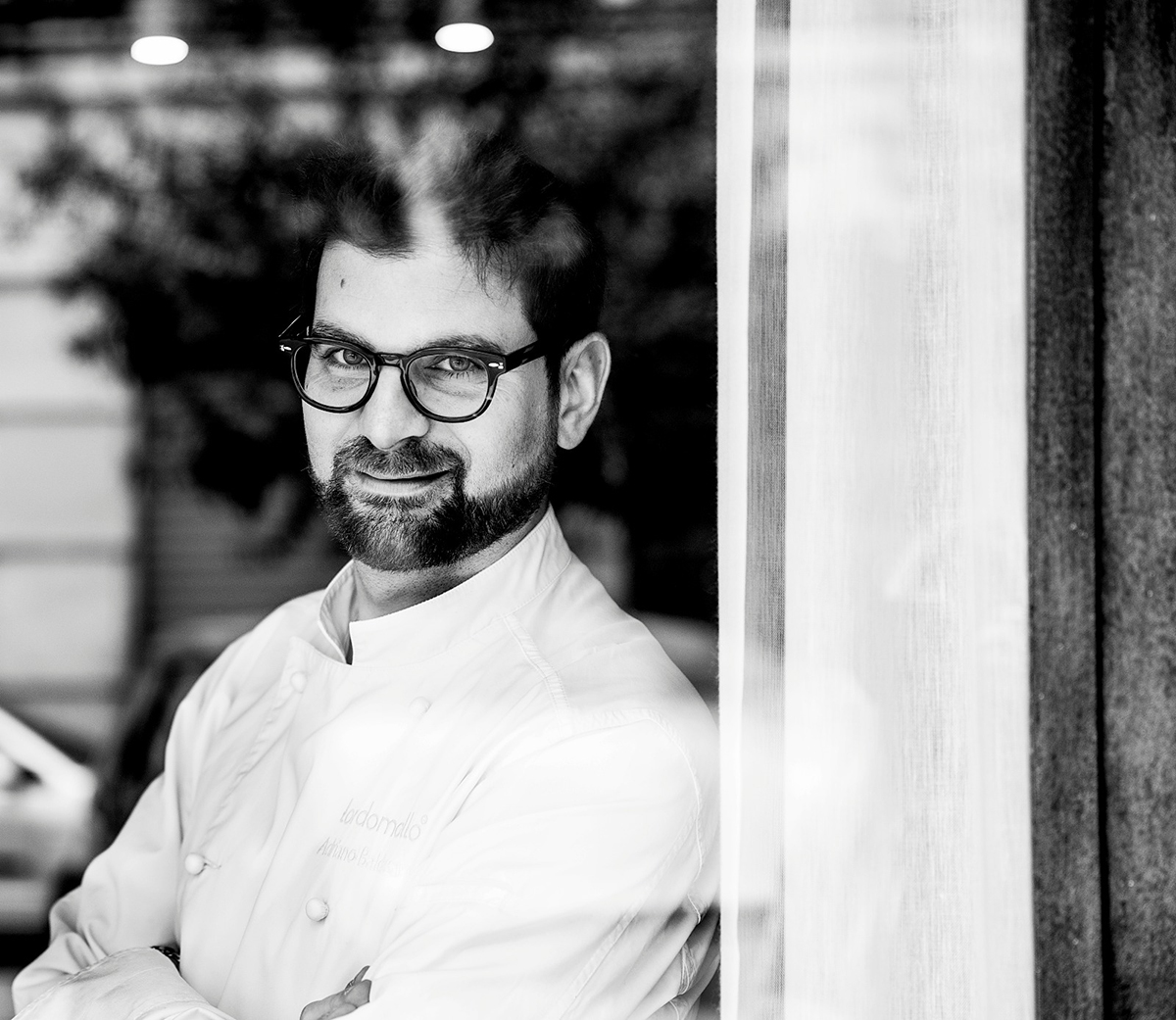
Italian Chef Adriano Baldassarre. Photo courtesy: Chef Adriano
Italian Chef Adriano Baldassarre, 40, has bagged prestigious collaborations with Locatelli in London and Antonello Colonna at Labico and Heinz Beck. He won the Michelin star in 2007 as one of the youngest chef. A couple of years ago, he came to India and spent two years as an executive chef of the Vetro restaurant at the Oberoi Hotel in Mumbai. Later, he returned to Italy and in February 2016, he opened the Tordomatto in the heart of Rome. Two months back he opened to public his second restaurant in Rome called Trattoria l'Avvolgibile. Both the restaurants serve traditional Italian cuisine.
In mid-January, Chef Baldassarre and Vikram Aditya Singh, vice-president and General Manager of The Lodhi and Head of Hospitality for DLF, organised an exclusive pop-up at the MKT at The Chanakya Mall in New Delhi to showcase some of the signature dishes of the upcoming Italian restaurant Perbacco at The Lodhi. Excerpts from an interview:
Shireen Quadri: How have your experiences of working at high-end F&B set-ups shaped your culinary journey?
Adriano Baldassarre: I started my culinary journey with Giorgio Locatelli, one of London’s finest Michelin-Starred Chefs at his restaurants — first at Zafferano and then Locanda Locatelli, which is known as much for its conviviality as the quality of its food. After that I worked with Antonello Colonna at Labico and the Three-Michelin Starred Chef Heinz Beck, which were great learning experiences for me. The two years spent at the Vetro in Mumbai, India, were also crucial to me as they really helped evolve my knowledge. When I returned to Italy, I opened my own restaurant, Tordomatto, where I won a Michelin Star at the age of 30, making me one of the youngest chefs to win this prestigious recognition. Two months back, I also launched my second restaurant in Rome, Trattoria l'Avvolgibile, which offers traditional Italian cuisine.
Shireen Quadri: Your cooking has been marked by a blend of fine and casual dining. Do you think these two lines are blurring at major restaurants around the world?
Adriano Baldassarre: I don’t believe in demarcating between fine and casual dining as the focus should be on the food and the experience. You go to the restaurant for the food and not just the decor. When the food is to your expectation, it is then that you notice the service. And when the service is fine, you see the other things like the decor, and so on.
Shireen Quadri: How did you happen to set up your own restaurant Tordomotto in Rome?
Adriano Baldassarre: I have worked with iconic Michelin Star Chefs like Giorgio Locatelli, Heinz Beck and Antonello Colonna and also spent two years spent in India as the Executive Chef of Vetro at The Oberoi, Mumbai. I learnt as much as I could to evolve my cooking through these experiences and then went on to pursue my dream of setting up my own restaurant. So I opened Tordomatto in Rome.
Shireen Quadri: What do you think are the characteristic features of Italian cuisine that have found favour with foodies across the globe?
Adriano Baldassarre: Italian food has a high umami quotient and flavours that whet one’s appetite. It is also known for the emphasis on use of fresh, simple, seasonal ingredients, like the different herbs and cheeses.
Shireen Quadri: The focus of your journey as a chef has been the taste and quality of the dishes you rustle up. How do you think it has helped you evolve?
Adriano Baldassarre: The sole focus for me is on great-tasting food, which is rooted in traditional cooking. I greatly respect the traditions of the cuisine and the ingredients that one must use. Also, one must always remember that the ultimate goal is to make people happy with what you put on the table. So if you cook with a happy mind and put your heart into it, it’ll show in the taste and quality of the dish.
Shireen Quadri: What difference did the Michelin star make? Did it make you more conscious of how you approach a particular dish?
Adriano Baldassarre: You can win one Michelin Star, or two or three; it doesn’t change your cooking. But once you achieve that, you are more conscious that you have a bigger responsibility and have to put in a particular approach for every detail of the dining experience, not just the food.
Shireen Quadri: What are some of your own favourite world cuisines?
Adriano Baldassarre: Indian and Chinese.
Shireen Quadri: Have your travels around the world helped shape the texture of your preparations?
Adriano Baldassarre: After my extensive experience with restaurants across Europe and in India, I had a richer flavour portfolio, with a bag that allowed me to expand the ability to use and combine more ingredients among them. It was an interesting experience to work in a country rich in culture, and diverse within its cuisines.
Shireen Quadri: Are you open to innovations and experiments or you would rather stick to the traditional methods?
Adriano Baldassarre: I am open to innovations and experiments, but for most preparations, I prefer to stick to the traditional methods. When you try to change tradition too much, it does not work in the long run as you are not being true to the origin and authenticity of the cuisine.
Shireen Quadri: Any favourite dishes from the Indian cuisine?
Adriano Baldassarre: Having worked in Mumbai for two years, I have a fair understanding of Indian cuisines. My favourites include Rogan Josh, Lamb Biryani and Chole Bhature.
Shireen Quadri: Tell us about some of the dishes that you made at the MKT pop-up at Chanakya?
Adriano Baldassarre: The pop-up menu is a preview of what guests can look forward to at the soon-to-be-launched Perbacco at The Lodhi, New Delhi. Vikram Aditya Singh, vice-president and General Manager of The Lodhi and Head of Hospitality for DLF, and I are excited to open the new restaurant. We have chosen the best of Perbacco’s dishes and showcased them through this menu at MKT.
More from Culture
Comments
*Comments will be moderated



